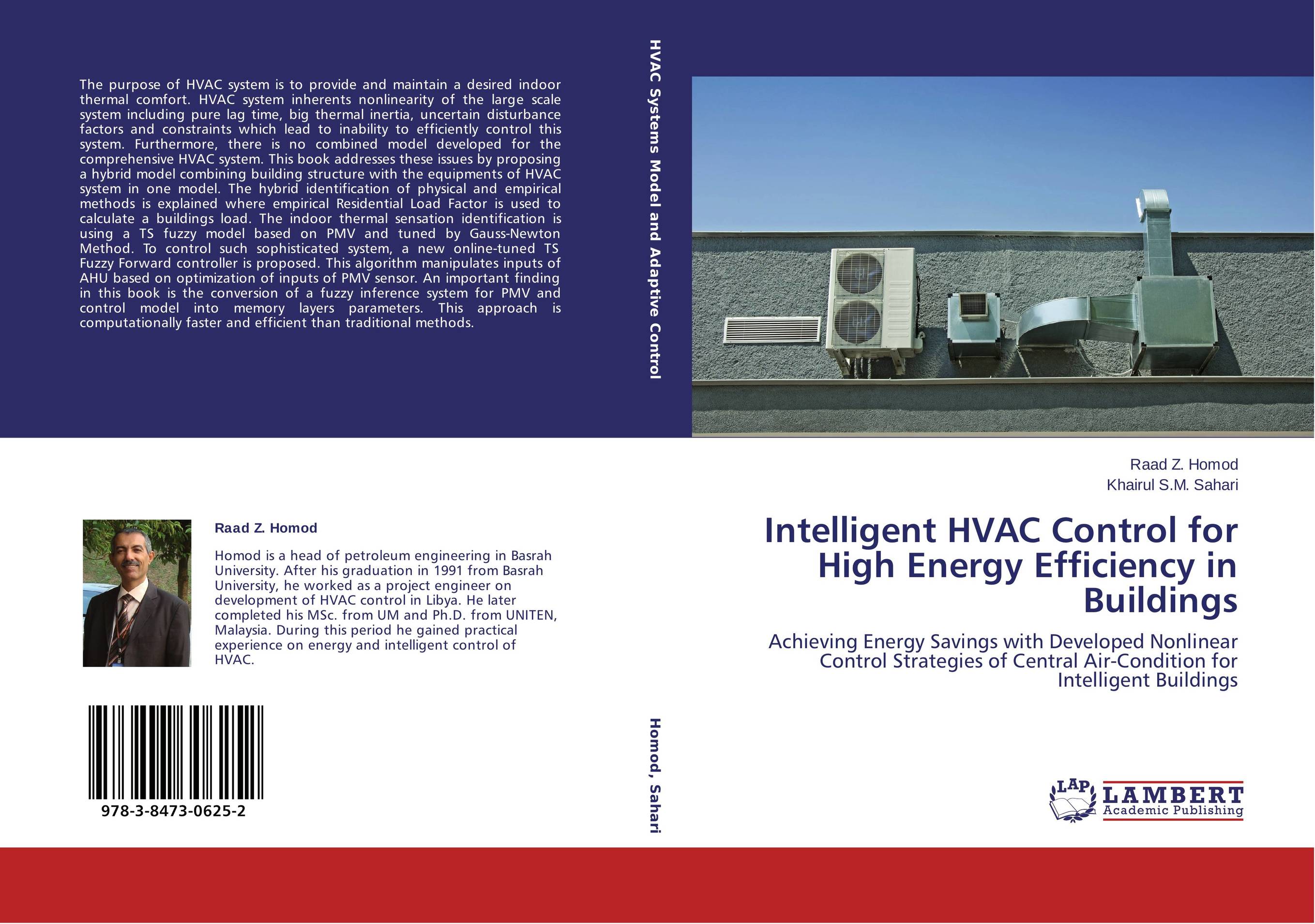| Поиск по каталогу |
|
(строгое соответствие)
|
- Профессиональная
- Научно-популярная
- Художественная
- Публицистика
- Детская
- Искусство
- Хобби, семья, дом
- Спорт
- Путеводители
- Блокноты, тетради, открытки
Intelligent HVAC Control for High Energy Efficiency in Buildings. Achieving Energy Savings with Developed Nonlinear Control Strategies of Central Air-Condition for Intelligent Buildings

В наличии
| Местонахождение: Алматы | Состояние экземпляра: новый |

Бумажная
версия
версия
Автор: Raad Z. Homod and Khairul S.M. Sahari
ISBN: 9783847306252
Год издания: 2014
Формат книги: 60×90/16 (145×215 мм)
Количество страниц: 288
Издательство: LAP LAMBERT Academic Publishing
Цена: 55801 тг
Положить в корзину
| Способы доставки в город Алматы * комплектация (срок до отгрузки) не более 2 рабочих дней |
| Самовывоз из города Алматы (пункты самовывоза партнёра CDEK) |
| Курьерская доставка CDEK из города Москва |
| Доставка Почтой России из города Москва |
Аннотация: The purpose of HVAC system is to provide and maintain a desired indoor thermal comfort. HVAC system inherents nonlinearity of the large scale system including pure lag time, big thermal inertia, uncertain disturbance factors and constraints which lead to inability to efficiently control this system. Furthermore, there is no combined model developed for the comprehensive HVAC system. This book addresses these issues by proposing a hybrid model combining building structure with the equipments of HVAC system in one model. The hybrid identification of physical and empirical methods is explained where empirical Residential Load Factor is used to calculate a buildings load. The indoor thermal sensation identification is using a TS fuzzy model based on PMV and tuned by Gauss-Newton Method. To control such sophisticated system, a new online-tuned TS Fuzzy Forward controller is proposed. This algorithm manipulates inputs of AHU based on optimization of inputs of PMV sensor. An important finding in this book is the conversion of a fuzzy inference system for PMV and control model into memory layers parameters. This approach is computationally faster and efficient than traditional methods.
Ключевые слова: energy efficiency, Modeling., HVAC systems, Intelligent Control



